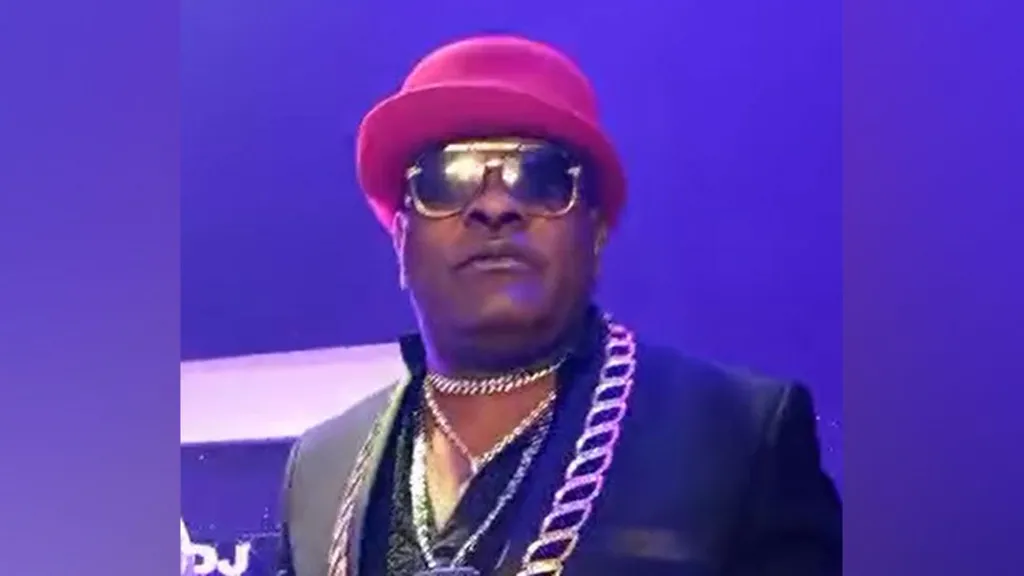Outrage Erupts in Cameroon Following Singer’s Torture Video
3 min read
Longue Longue Longue Longue said he was arrested for his "freedom of thought"

Longue Longue Longue Longue said he was arrested for his "freedom of thought"
A disturbing video allegedly depicting the torture of prominent Cameroonian singer Simon Longkana Agno, better known as Longue Longue, has ignited widespread outrage across Cameroon. The singer, celebrated for his songs addressing issues like bad governance and colonialism, claims the footage was recorded after his arrest in 2019, but it has only now surfaced publicly.
Longue Longue himself released the video, stating that it was sent to him by an anonymous source in the United States. In the chilling footage, he is seen sitting on the floor in his underwear, hands cuffed behind his back, while his bare feet are mercilessly beaten with a flat machete. Despite his desperate pleas for the violence to cease, the alleged assailants, who Longue Longue identifies as security agents, continue their assault.
While the authenticity of the video remains unverified by the BBC, the impact of its release has been immediate and profound. The Cameroonian government responded by announcing an investigation into what it termed an “unfortunate incident.”
Longue Longue, reflecting on his ordeal, stated on Facebook that he was targeted for expressing his “freedom of thought.” Now residing in France for safety, he expressed his fears about returning to Cameroon, especially with the presidential elections approaching next year. “It’s been three months since I left Cameroon; I didn’t feel safe there anymore,” the 51-year-old artist told BBC Afrique.
Although he feels more secure in France, he remains deeply concerned for his family back home, particularly after receiving threats regarding the release of the video. “I received calls warning that if this video became public, they would target my family,” he explained. Longue Longue’s troubles began in 2019 when he posted a video accusing long-standing President Paul Biya of rigging the 2018 elections, asserting that opposition leader Maurice Kamto of the Cameroon Renaissance Movement (CRM) was the rightful winner.
 The Constitutional Council had previously dismissed Kamto’s demand for a re-run of the elections, citing alleged irregularities, which added to the already charged political atmosphere in Cameroon. Kamto has since condemned the alleged torture of Longue Longue and has called for an immediate investigation. In a statement on X, he labeled the incident as “state barbarity” and demanded urgent action to bring the perpetrators to justice.
The Constitutional Council had previously dismissed Kamto’s demand for a re-run of the elections, citing alleged irregularities, which added to the already charged political atmosphere in Cameroon. Kamto has since condemned the alleged torture of Longue Longue and has called for an immediate investigation. In a statement on X, he labeled the incident as “state barbarity” and demanded urgent action to bring the perpetrators to justice.
The singer’s treatment has drawn sharp criticism from human rights advocates. Akere Muna, a well-known human rights lawyer in Cameroon, remarked that Longue Longue’s experience serves as a “stark reminder of the depths of depravity to which humanity can descend.” Rights organizations have accused the Cameroonian government of fostering an environment of impunity among security forces, especially as the nation heads toward the 2024 presidential election.
The government’s heavy-handed approach to dissent has alarmed many citizens and human rights defenders alike, raising concerns about the safety of those who speak out against the regime. Longue Longue’s case is not an isolated incident; it reflects a broader pattern of repression against artists and activists who dare to challenge the status quo.
In light of these events, calls for accountability and reform within Cameroon have grown louder. Citizens are demanding a transparent investigation and an end to the culture of violence and intimidation that has plagued the country for years. As public outrage continues to mount, the situation remains tense, with many watching closely to see how the government will respond to both the video’s revelations and the ongoing calls for justice.
Longue Longue’s story serves as a crucial reminder of the challenges faced by those who resist authoritarianism, highlighting the urgent need for protective measures for activists and artists in Cameroon and beyond. The international community’s reaction to these developments may also play a significant role in shaping the future of political discourse in the country.